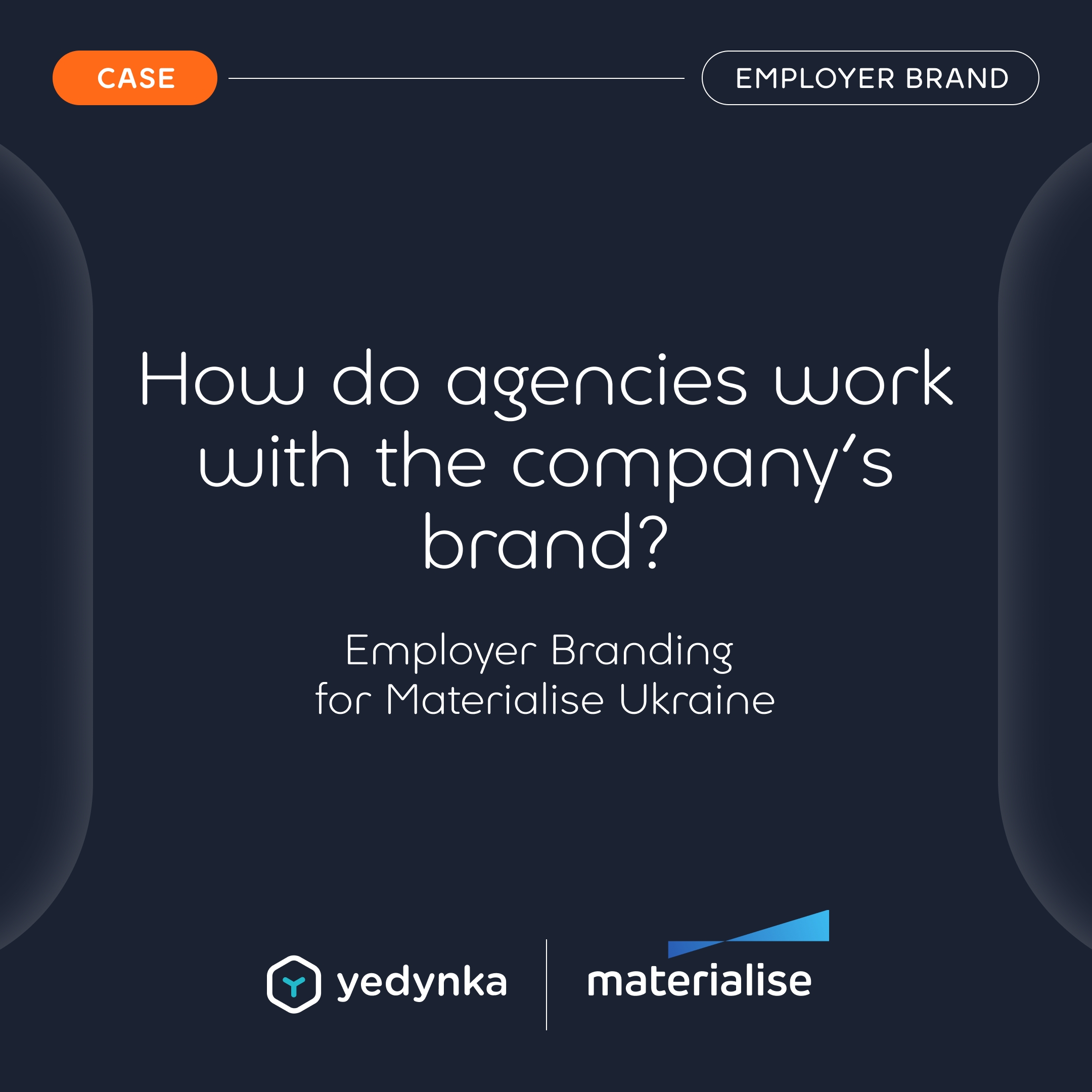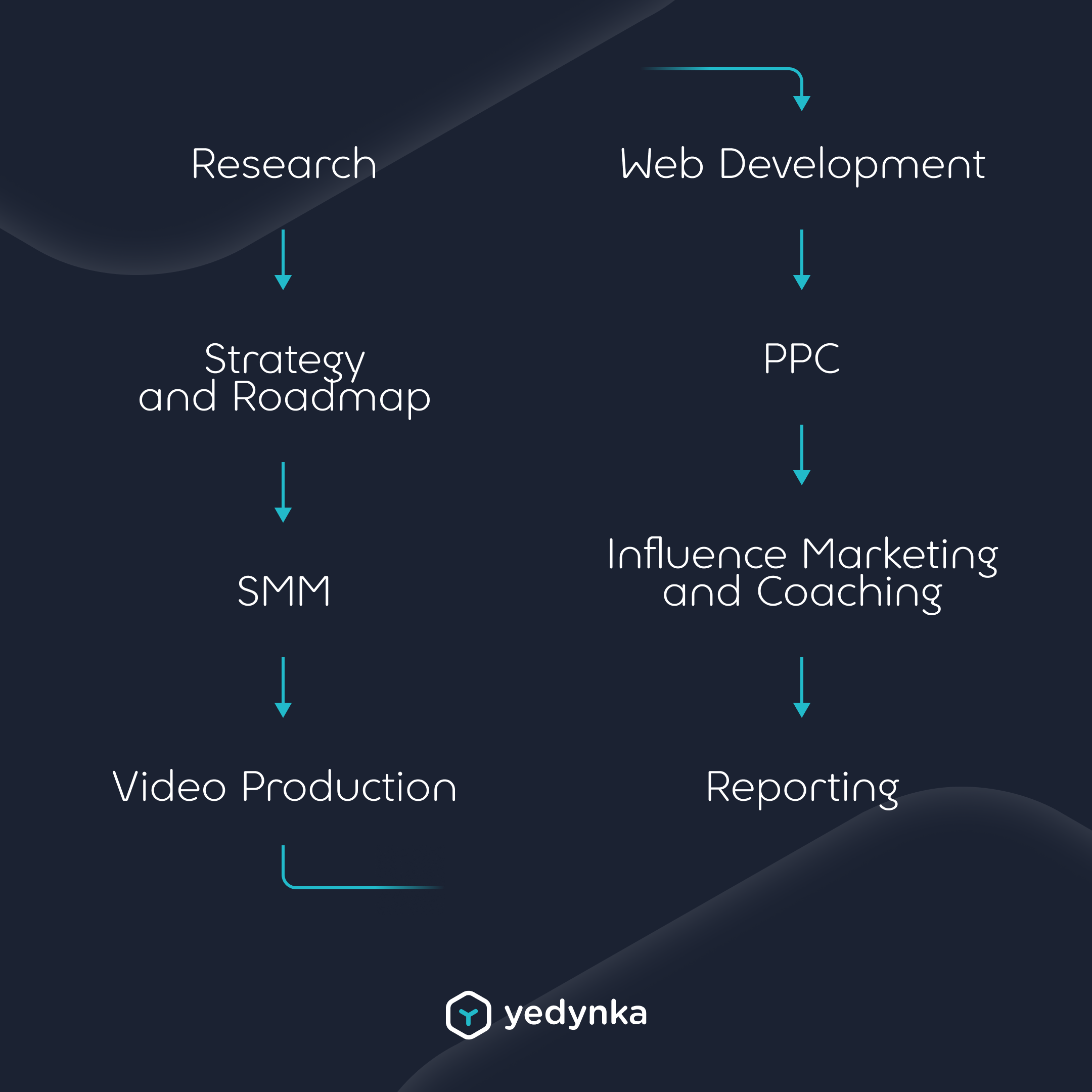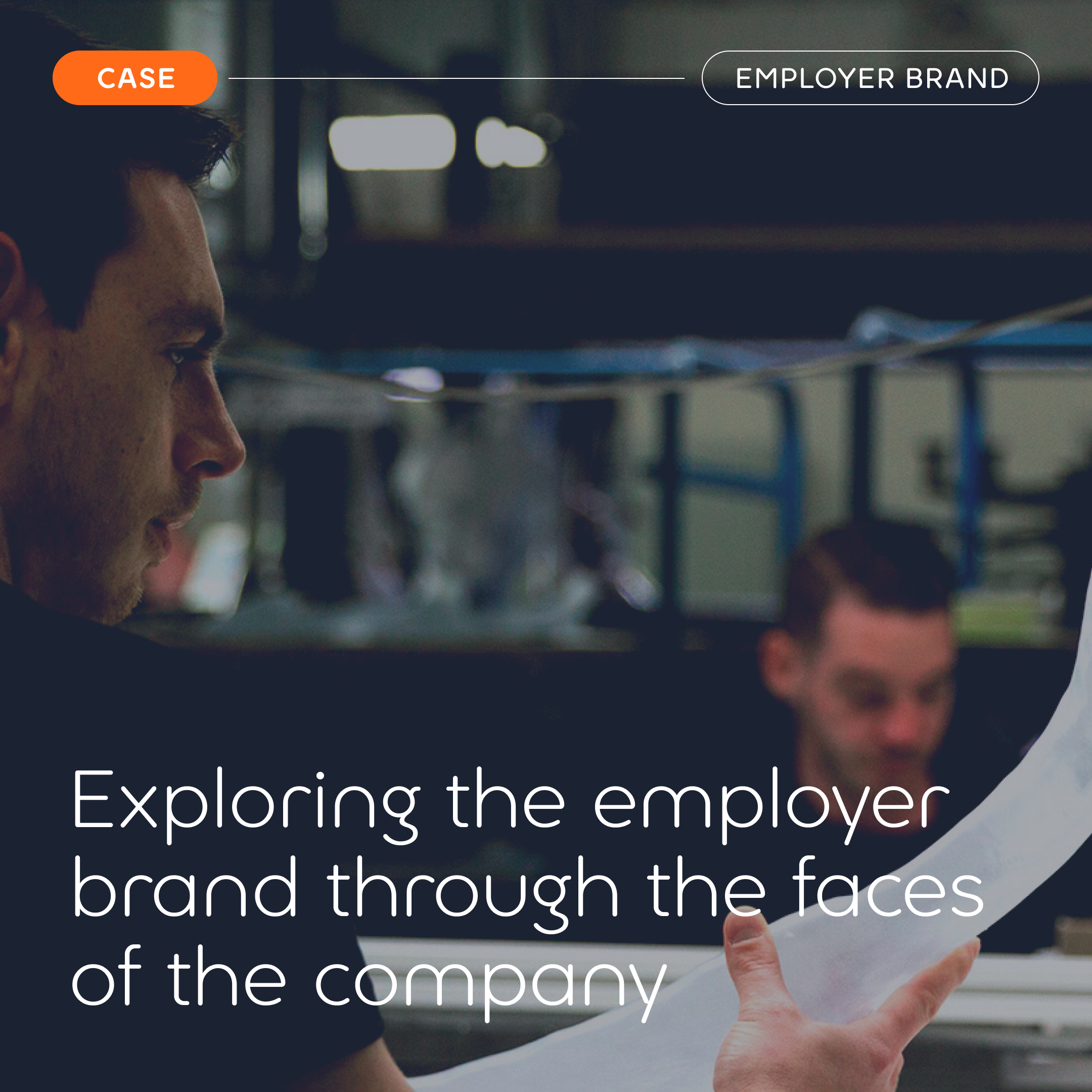Materialise: Employer Branding Strategy Case Study

Materialise is an international team of leaders in developing 3D printing software. They are, in fact, one of the largest companies in the world working in this field. The heart of Materialise is in Belgium, where the largest European 3D hub is located, and the company's second-largest office is in Kyiv, Ukraine. The entire development team is located there, and it was with that team that we implemented our employer branding project.
THE GENERAL SITUATION AND MAIN TASKS
The ultimate goal of Materialise was to fill vacant positions in the company. However, the brand wasn't well known in Ukraine, although it's recognized worldwide and has one of the most experienced teams of C++ engineers. To gain recognition, we had to work with the Materialise brand in Ukraine.
SOLUTION
We decided to tackle the issue comprehensively and planned activities that included SMM, PPC, influence marketing, video production, coaching, and web development services.
Chronologically, the process looked like this:
Research → Strategy and Roadmap → SMM → Video Production → Web Development → PPC → Influence Marketing and Coaching → Reporting

PHASES OF COOPERATION
Research
Materialise shared with us the results of a strategy session and a series of in-depth employee interviews. The company proved to be a very stable employer, with most employees staying with them for more than five years. Materialise also allowed team members to grow both horizontally and vertically.
After analyzing the results of the in-depth interviews, we immediately set out to investigate the Ukrainian IT market. We researched reviews about the company on various websites such as DOU, Glassdoor, Indeed, and Google and hypothesized about the brand's information field, the tone of the reviews, and market trends. We then identified the most important criteria for choosing an employer based on open data and existing research and created charts to see where these criteria aligned with Materialise's offering.
Strategy and roadmap
Our strategy involved analyzing Materialise's current audience (including on social media) and the company’s competitors, examining the drivers and barriers for the business, creating an Employer Value Proposition and persona portraits, considering communication in the digital space, creating a strategy for social media brand promotion and its KPIs, SMM ideas and activities, and more.
SMM
The company wasn't contributing to its social media pages regularly, so we developed a basic SMM strategy and began populating the pages with relevant content to increase audience reach and engagement. The content was centered around case studies, success stories, Materialise in numbers, and company life.
Our designers also created social media branding to make the posts recognizable in the feed, indirectly increasing brand awareness. Some posts were promoted to the target audience determined by our targeting specialist.
Video production
We needed to bring in a video production team for the next phase of the collaboration — Hiring Week. We went into the Materialise office and interviewed four employees, each of whom managed a department that had open positions we were expecting to fill during Hiring Week.
The interviews were designed to highlight four aspects of Materialise: the global nature of the company, career prospects, social activities, and team life. Each video had subtitles and wasn’t longer than 2 minutes.
We chose different locations for all interviews, which allowed us to show the working atmosphere in the company, demonstrate modern offices with recreation rooms, and more.
The videos became the central element of the landing page we created for Hiring Week.
Web development
Since the landing page was created exclusively for Hiring Week, it meant we wouldn’t need it after the project was over. That's why we decided to create it using Wix Website Builder. The result was a stylish website that checked all the items on our list, didn’t require a lot of development effort, and was easy on the client’s budget.
In addition, Wix allowed us to launch advertising, collect statistics about applications received, communicate with applicants, and integrate the website with other marketing activities.
PPC
We used organic and paid promotion options to collect applications. Organic promotion involved distributing information about Hiring Week on professional platforms and through the company's HR managers. Paid promotion, on the other hand, consisted of a large-scale promotional campaign launched on Facebook and Google.
Since our media campaign was detailed in the strategy, all we had to do was prepare visuals and ad copy for launch. Hiring Week lasted two weeks, during which we constantly optimized our advertising campaigns and analyzed the results.
The campaigns followed three goals: conversions, reach, and website traffic. Within a month, we divided our campaigns to target junior software engineers and middle+senior engineers. The campaigns were also divided by age, interests, and ad copy.
Overall, the campaigns were a success: we increased the number of leads in the first week and attracted an even more relevant audience in the second one. All because we had a fruitful first-week campaign and optimized the second-week campaign in terms of structure and settings.
Influence marketing and coaching
To increase brand awareness in the long run, we offered the client an influence marketing service, with the company's employees acting as ambassadors. The initiative generated a lot of interest among Materialise's professionals.
During this phase, we created an influence marketing strategy and roadmap, helped select topics for articles and social media posts for employees of different specialties, offered copy editing services, helped with publishing on online resources, and more.

RESULTS
As a report, we created a presentation that included the results of the work and the KPIs achieved for each of the work phases:
- The research phase: a strategy presentation with our findings, a roadmap, hypotheses and tactical steps to build the client's employer brand.
- The SMM phase: a content strategy presentation, branding for social media, and populating the company’s social media pages with content.
- The video production phase: edited interviews with department heads that could be used on various channels to promote the brand.
- The web development phase: a landing page that met the goals of the Hiring Week project.
- The PPC phase: a planned and executed series of advertising campaigns that resulted in interviews with HR companies for open positions. The client also received a set of advertising target groups with tested hypotheses that can be used for future advertising campaigns.
- The influence marketing and coaching phase: a strategy to promote corporate ambassadors, blogging and SMM training.
